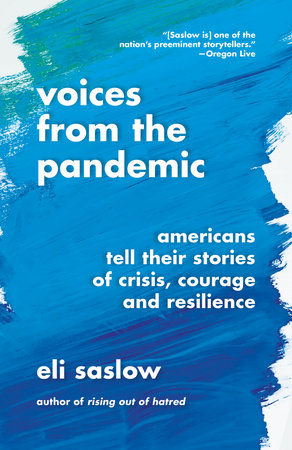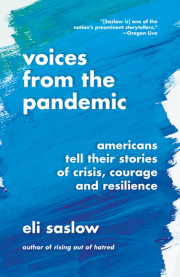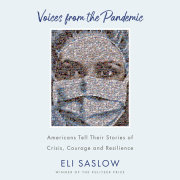Chapter 1
“Anything good I could say about this would be a lie”
Tony Sizemore, on the death of Birdie Shelton
Indianapolis—March 2020
She’s dead, and I’m quarantined. That’s how the story ends. I keep going back over it in loops, trying to find a way to sweeten it, but nothing changes the facts. I wasn’t there with her at the end. I didn’t get to say goodbye. I don’t even know where her body is right now, or if the only thing that’s left is her ashes.
From normal life to this hell in a week. That’s how long it took. I’d barely even heard of this damn virus until a few days ago. How am I supposed to make any sense of that? It’s loops and more loops.
She transported cars for a rental company. That’s where all this must have come from. People fly in from somewhere for a meeting and fly out a few hours later. You’ve got germs from all over the world inside those cars. I didn’t like the fact that she was working so hard, sixty-nine years old and still climbing in and out of Ford Fusions all day, driving from Indianapolis to St. Louis and back with bad knees, bad hips, diabetes, and all the rest of it. Sometimes she hurt so much after work that I had to help her out of the car. I guess I should have told her to quit, but nobody told Birdie anything. She liked to drive, and we needed the money.
I think she’d been feeling bad for a few days, but I don’t remember much about what happened early on. She wasn’t a complainer, and I’m not always the best at noticing. There was a cough somewhere in there. Probably a touch of a fever. But this was a few weeks back, when those things didn’t mean so much. I thought she probably had a cold, or maybe bronchitis. She would get that sometimes, lose her voice and be fine a few days later, no big deal. But then she woke me up at about four in the morning and kept pointing to her throat. She said she couldn’t sleep. Said her eyes hurt. Said it felt like somebody was pounding on top of her head. Birdie’s usually one of those who wants to rub some dirt on it and keep moving, so when she told me to take her to the emergency room, I knew it was serious. I knew she was sick.
First it was a fever of 103. Then the doctors decided it was pneumonia and went ahead and admitted her. Then it was pneumonia in both of her lungs. If anybody was thinking it was the coronavirus, I didn’t hear it—at least not at first. Nobody in Indiana had it yet. Nobody here was even talking about that. Maybe you’d see it on the news every once in a while. But even if it was killing a few people on some cruise ship or infecting a nursing home in Washington State, it was basically just happening on TV.
The best precautions weren’t taken in the early stages. Nobody really knew what the dangers were or what we were supposed to do. A few nurses wore gloves or masks when they came to see Birdie, but that seemed normal for treating pneumonia. I didn’t wear anything to protect myself, and nobody really asked me to. I was lying next to her in the bed or sitting in a chair and holding her hand. She didn’t have much other family, and if I got up to go out into the hallway for a few minutes, I’d lean down and kiss her goodbye.
Would it have gone any different if they knew what was making her so sick? Maybe. Or maybe they would have quarantined her right then, and I would have lost a few more days with her.
See, I could analyze this to death. I’ll be doing this for the rest of my life.
It was hard for me to sit there. I’m almost ashamed to say that, but it’s true. She was in the bed, and I was usually a few feet away in the recliner. It was two or three days in that room, but each one felt like a year. I’m not a natural caretaker, and never claimed to be, but it seemed like no matter what I tried, I couldn’t help her. It was just watch, wait, touch her forehead, apologize, try to hold myself together. I couldn’t do anything. Nobody could.
She was taking so much oxygen, but it was never enough. She had two little tubes put in her nose, and she still couldn’t get enough air. They put a big mask on her face to get her oxygen back up, and that made her claustrophobic and panicky. She got real freaked out. I tried to count breaths with her to calm her down. I kept saying: “Easy. Easy. In, out. In, out.” I couldn’t distract her because she was so deep in her head with panic. It labored her to talk. It labored her to breathe. I said, “Don’t talk then, honey. Just sit. Save your energy.” There was a TV in there, but neither of us could focus on it. I sat in the quiet with her, for whatever comfort that might have brought her. I don’t know. I listened to her breathing. I watched her. When she was asleep, she was taking these real quick, short breaths, like she was gulping air more than breathing it. When she was awake, she was kind of mumbling to herself. I tried to understand, but she wasn’t making any sense. Maybe it was the medication they were giving her. I hope to God it was the medication. She was talking about how her eyes hurt, her insides hurt. She would clutch her fists and hit the bed and stuff, and you don’t really know how to help somebody in that frame. I mean, when she’s just clutching her fists and moaning and—I don’t know. I don’t know what I could have done. I sat there for as long as I could and then I got up every few hours to pace the hallway, or I’d drive eight minutes home to feed the dogs. I was starting to go a little crazy myself. I couldn’t keep sitting there, feeling helpless, feeling useless, listening to her breathe.
It was an awful time. I should be thankful she’s not suffering anymore, but she did suffer some.
It got worse. Her breaths got raspy. Shorter. They put her on life support. They rolled her across the hall one afternoon and tested her for the virus. At some point in there, I went home after midnight to check on the dogs, and when I came back early the next morning there was a sign that said “No Visitors” taped to the door of the hallway that led to her room. The whole thing became confusing to me. They said I couldn’t go in. They said nobody could. I sat in the waiting room for hours. I peeked through the window down the hallway once and saw them moving her to a different room. It looked like she was sleeping with the tube down her throat. The doctor said she was heavily sedated to stay comfortable. I’d like to believe that, but I don’t know if she was comfortable or not.
When they told me the COVID test was positive, I started learning more about the virus from the doctors. Right away I thought it was a death sentence for her. She had every underlying condition this virus attacks. Damaged lungs. High blood pressure. Her body wasn’t strong enough. She was lying there waiting to die.
The doctors told me to go home, but I didn’t. Most of the time, I sat by the elevators in the waiting room. Nobody else was in there. Sometimes one of Birdie’s friends would come sit with me. The doctors kept saying “No change.” “No change.” It had been five days at that point since she’d woken me up pointing at her throat. They sent a chaplain to talk to me. He was wearing a mask, but he put his hand on my shoulder. Their voices kind of kept getting softer and softer. Everyone knew what was coming. I was up most nights and sleeping some in the day. My body wore down. I started coughing, and they told me I didn’t have a choice. They said I needed to go home and quarantine. Here I was worrying that Birdie was going to be the first victim of this virus in Indiana, and now I’m thinking that I might be the second.
I walked circles in the house. I’m sixty-two, fairly healthy but not indestructible, and now I’m worrying about Birdie but also about my own mortality. Pretty soon the hospital started calling me to ask about unplugging her. They said her kidneys were shutting down. They said all of her organs were going, but that it was my decision. I told them: “How can I turn her off without looking at her? I can’t take your word on this. She might be doing jumping jacks for all I know. I need to see her before I make that final call.” That’s when they started talking about setting up a video call, so they could take her off some of the meds and I could say some kind of goodbye.
I’m not a techie. Birdie liked to tease me about that. When I got together with her six years ago, I still had a flip phone. She liked going on Facebook, and to be honest it kind of pissed me off when she was on her phone all the time. The only friends I have are ones I can see and touch. But now I’m talking on the phone for hours with some nice lady from hospital IT, and she’s telling me how to download some kind of app. She asked if I had an iPhone, but I don’t. I found one of Birdie’s old ones, but I didn’t have the password. So now I’m getting frustrated, trying to get this video chat to work on my old Android so I can see Birdie on the ventilator. The lady said my phone needed to be charged to fifty percent for the video to work, but my phone hasn’t seen fifty percent in two years. It only charges if it’s turned off, so I started turning it off and back on every few hours to check if anyone had been calling about Birdie. And it’s like, you know what, is this really what I should be doing right now? Is this really how I’m supposed to tell her goodbye? Over this damn phone screen? Finally the phone gets to fifty and then dies out of nowhere. Fifty again but I need some kind of password. I said to hell with it. This isn’t going to work.
The doctor called the next morning. Birdie died at 10:20. So I didn’t have to unplug her, and I didn’t get to see her or say goodbye.
They held a press conference, since she was the first to die in Indiana. They told all the media that we got to say goodbye over video. I guess it’s a nicer story. I don’t really blame them. I’d like to find a way to sugarcoat this thing, too, but I can’t. Anything good I could say about this would be a lie.
They told me to isolate and stay home for fourteen days from the last time I saw her. I’m kind of losing track of how many days it’s been. I have some depression issues, and it would be real easy for me to go to bed and pull the covers up over my head. I could bury myself in this thing and let my mind keep running loops. I’m staring at her clothes in the closet. Her curling iron is on the bathroom sink. Her car’s out front that we owe money on. I have no idea what I’m going to do. I don’t know what bills are paid up and what ones aren’t. She handled most of that. She looked after me in some ways like she cared for everybody, whether she knew you or not. That was always her nature. Anyway. I’ll spend years trying to pick up all these pieces. Yesterday afternoon, they cut the power off, but I figured out how to get it back on.
I haven’t eaten much, and it’s probably making me weak. I’m bone-tired and coughing like crazy. They called me back to the hospital for a chest X-ray, but the doctors said I looked good. No fever. No trouble breathing. They decided not to even give me a test. They have twelve nurses quarantined over there now and a whole floor of people with the virus, but I got lucky. They told me I’ll be fine.
Chapter 2
“Another twelve hours in this waking nightmare”
Sal Hadwan, on the failings of an overwhelmed hospital
Detroit—April 2020
I’m the shift leader of this nursing team. I give them their assignments at the beginning of the night, but lately there are nights when I can’t find the words. I can’t look them in the eye. There’s so much shame because of the situation we’ve been put in. This virus is a monster to treat even if you’ve got every resource in the world at your disposal, and we’re being sent out there half-naked. We’re getting crushed every night. I stand in front of the other nurses, stumbling through their assignments. “I’m sorry. I’m sorry you have to go out and deal with all this.”
Overwhelmed would have been a good word for this hospital a week or so ago, when the pandemic was just starting. Now we’re beyond that—we’re way out of our depth. This virus went from being nothing but a rumor a month ago to taking over our whole emergency room. Sinai-Grace is the hardest-hit hospital in downtown Detroit, and it wasn’t prepared. We’re understaffed. We’re running out of masks and protective gear. We have so many nurses out sick with the virus, and we haven’t replaced any of them. Who wants to come work here right now? At best, it’s going to be a nightmare. At worst, it’s a death sentence. We don’t have the resources to handle this. Each one of my nurses should be taking care of four to six patients during a shift. That’s what it says in the handbook. I’m sending them out to care for fifteen or twenty people in critical condition. It’s criminal. It makes me physically sick.
Some nights we’ve had 120 patients in the ER at once. That’s three times what’s normal. It’s one emergency code after the next. We’ve been putting double beds in rooms, beds in hallways, beds in closets, until eventually we ran out of beds. Some people are sitting in wheelchairs in the hallway now. We have extension cords running everywhere to try to get oxygen to all these people. Patients sometimes sit in the waiting room for a full day after they’ve been admitted, because that’s the only chair left. And these aren’t normal patients. Half of them look like they’re going to drop any minute.
Copyright © 2021 by Eli Saslow. All rights reserved. No part of this excerpt may be reproduced or reprinted without permission in writing from the publisher.












